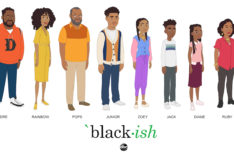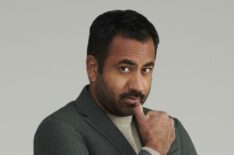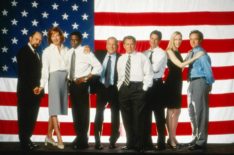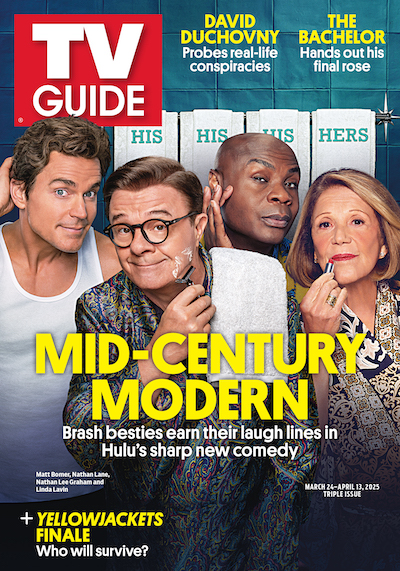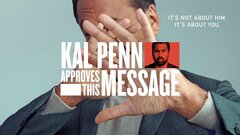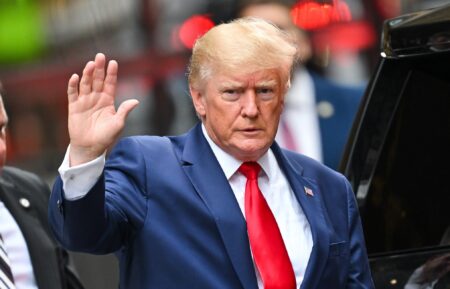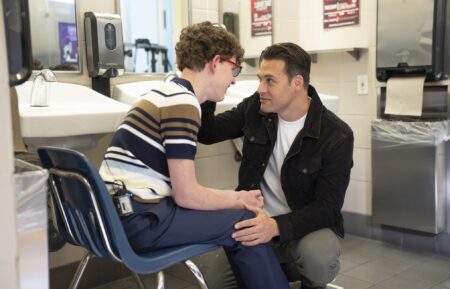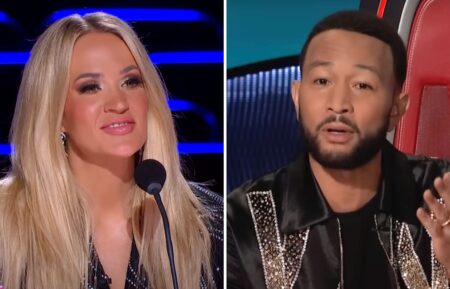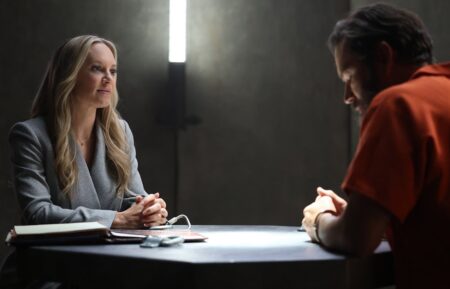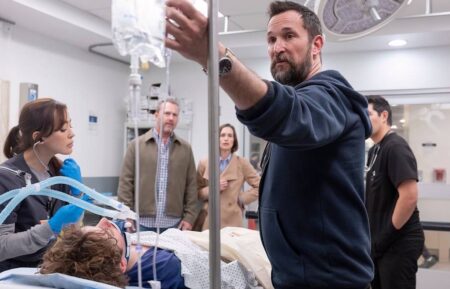Kal Penn on ‘Kal Penn Approves This Message’ & Its Push to Get Young Voters Involved
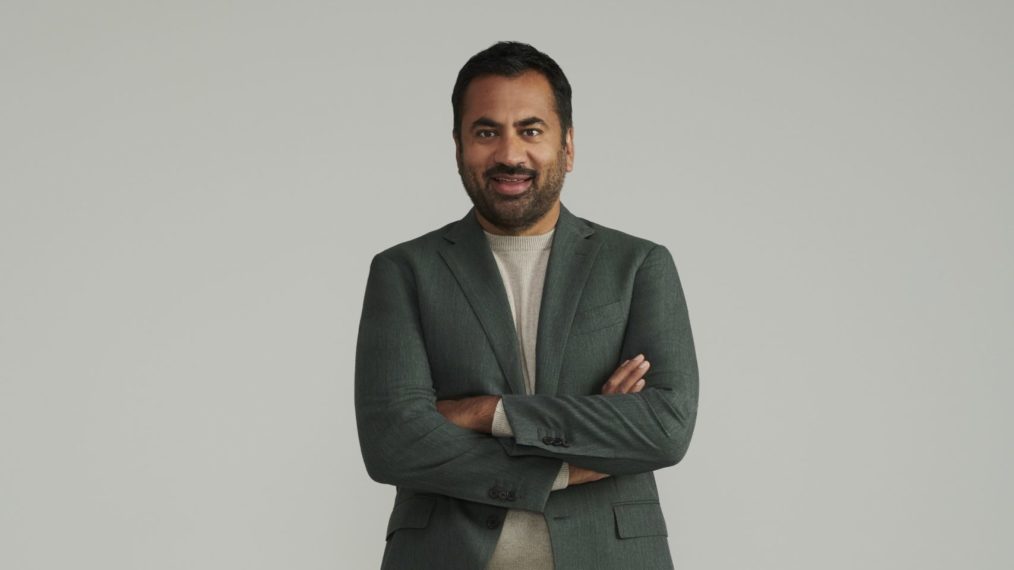
Q&A
Voting — it’s all anyone can talk about, and actor and creator Kal Penn is discussing it even more in his forthcoming Freeform series Kal Penn Approves This Message.
Skewed towards young voters, this non-partisan series is breaking down the big issues that will help get them into voting booths or sending in ballots for the upcoming presidential election. Described as smart and irreverent, this unscripted comedy will include field pieces, sit-down interviews and monologues touching on topics ranging from the economy and climate change to voter empowerment.
Premiering Tuesday, September 22, Kal Penn Approves This Message will air weekly throughout the month and conclude on Tuesday, October 27 ahead of the November 3rd election. Below, Penn previews the series, its push to get GenZ and Millennials involved and much more.
What should people know about Kal Penn Approves This Message? What is this new series about?
Kal Penn: If you took the humor of The Daily Show and combined it with the feel good, informative nature of CBS Sunday Morning, that’s our show. In the past couple of years there have been people who approached me saying, “Will you host this show about politics or this or that?” So then my writing partner Romen [Borsellino] and I said, “Well, what if we just create our own?”
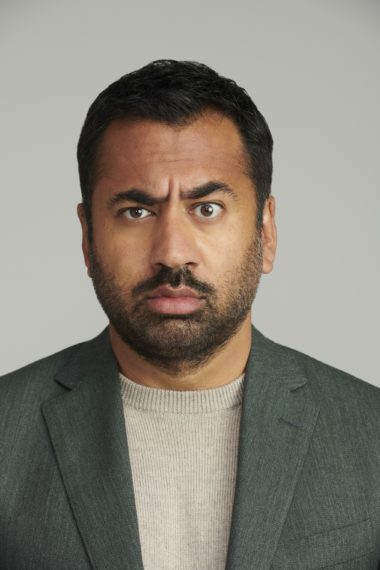
(Credit: Freeform/Robbie Fimmano)
So each episode’s only a half hour for Freeform and Hulu. It starts off with a monologue that focuses on one particular issue and the context of a particular issue. And then we have a field piece where we immerse ourselves in what that issue is and then there’s a guest in the third segment. The point of all three is they’re interrelated so that you leave the episode feeling empowered or feeling like, “Okay, if this is an issue that I care about, here are the things that I can do to learn more about it before I go vote.”
What inspired you to get involved this way?
It’s funny, people are asking about the timeline of the show right now and I would say, when I had the chance to develop Sunnyside last season. I had wanted to develop something for a while, but I was on Designated Survivor, so we couldn’t do it. In this case, it’s a similar thing. I’m about to go shoot Clarice for CBS, but that doesn’t start for a little while. And we’re like, “Hey, this is a great time.” And I don’t want to do an election special that’s the Thursday before election day, because everybody’s doing that. What about a miniseries? What about a six episode arc that leads up to that? So that’s why the timing worked out that way.
It’s like you’re hitting while the iron’s still hot but beating everyone else to the punch.
We’re also in a little bit of a different space. We’re a comedy forward aspirational show more than the wonky stuff. We never talk about particular candidates. If we ever have politicians on — we’re still figuring out our guests, but I hope we have a couple of politicians on — my questions for them are going to be more around youth vote, on elections that they’ve won or lost. Did young people come out in the numbers they expected? What was their youth outreach like? How many young people have to show up for them to change their policy stance on particular things? So I feel we also just live in a totally different space than the wonkier shows.
People know you for your comedic roles and projects. How will the show incorporate humor?
Humor’s the great unifier, right? So, because we wanted to make a show that everybody can enjoy, it’s got to be comedy forward. The first time I learned this was the Harold and Kumar movies. The cynics at the time were like, “Audiences aren’t ready for an Asian and Indian guy to lead up a studio comedy.” And we were like, “Hey, is that true? I feel like that’s not true. Like my friends would totally watch it.” And it turned out to not be true. Audiences would go and see it. So it’s the same thing here, what we love about comedy is it unifies us.
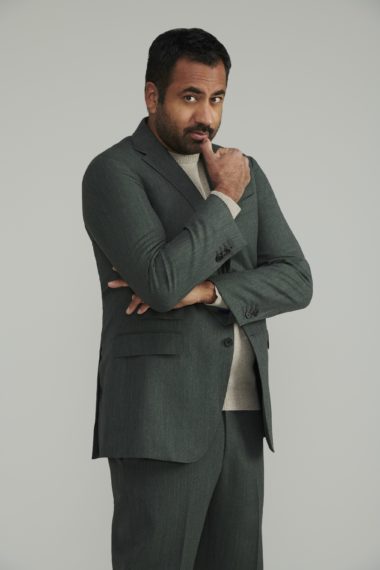
(Credit: Freeform/Robbie Fimmano)
In terms of how we execute the comedy, it’s a couple of different things. Some of them are mini improvised sketches. And then my brain works in weird ways, so for example, we were doing a deep dive in our research packets about college versus trade school. I don’t want to get into this beef that you see where people pick college versus trade school and these moral arguments of how college is only if you’re an elite and trade school only if you can’t afford college.
My brain went to the following place of, “that’s like Nicki Minaj versus Cardi B.” I like Nicki Minaj and I like Cardi B. I’m allowed to like both. And I’m like, “Kal, you’re hosting a show about civics. You can’t talk about Cardi B and Nicki Minaj.” And I was like, “Wait a second. Yes, I can talk about Cardi B and Nicki Minaj,” because that’s how my brain works. So we ended up then playing with that idea a little bit, and it’s like, “Okay, trade school versus college is like Cardi versus Nicki.” It comes back to that issue of whether you’re a young conservative or a young progressive, whether you like Cardi or Nicki better. The point is actually something else which is what’s going to happen in the future and shouldn’t we be focusing on that?
You worked as an Associate Director at the White House Office of Public Liaison and have lectured at University of Pennsylvania. How did those experiences influence your approach to this series?
I wouldn’t say the politics of any of those have influenced the show at all, but the one thing that was a really wonderful, inspiring takeaway from all of those experiences, is don’t pander to people. How many times leading up to an election, do you somehow get an email or a promoted tweet that people think is the right way to reach out to you? For me, it’s like people will reach out being like, “Hey, can you help? Can you do this fundraiser for us for Indian Americans for this candidate?” And I’m like, “You know I do care about a hundred other issues too, right? Like I can do things other than being brown.”
It’s the same thing for young people or for any other demographic group where people are like, “Hey, this candidate is going to make this TikTok so that we’re cool.” I’m like, “Or you could talk about student debt and your solutions for it. Or you could talk about what you’re going to do for military service members who happen to be young.” So our big takeaway for that is, young people respond really well when you actually take the time to discuss issues with them. That was my big takeaway from those experiences and that’s what we want to do with the show.
What do you hope viewers take away from the show?
I think the biggest takeaway for us would be, we want to illustrate why your vote is so powerful. People are trying to make you feel like your vote doesn’t matter. The reason that they do that is because they’re scared of the power that we have. If we didn’t have that much power, they wouldn’t go to such great lengths to try to get us to not show up and to be fair, that happens on the left and the right. It happens all over the place. The great silver lining for this election is people are actually talking about it. It’s not a conspiracy theory. It’s a fact of life in the political spectrum that if young people actually show up, the people in positions of power would probably be replaced or if they weren’t replaced, they would have to cater to the needs of young people.
And that means that if you’re a progressive in Alabama or if you’re a conservative in a place like New York City, your vote still matters, because even if the tabulation is that you’ve only moved the needle by 5%, that still means that your elected officials have to go, “Oh my gosh, 5% of people changed their mind on something. Am I either going to lose my job in the future or do I need to start representing their views and changing my views?” So it matters a lot.
Kal Penn Approves This Message, Series Premiere, Tuesday, September 22, Freeform (Next day on Hulu)
From TV Guide Magazine
How Hulu's 'Mid-Century Modern' Is a 'Golden Girls' for Our Times
Settle in for some older and bolder laughs with the BFFs of a certain age in the new comedy starring Nathan Lane, Matt Bomer, and Nathan Lee Graham. Read the story now on TV Insider.

